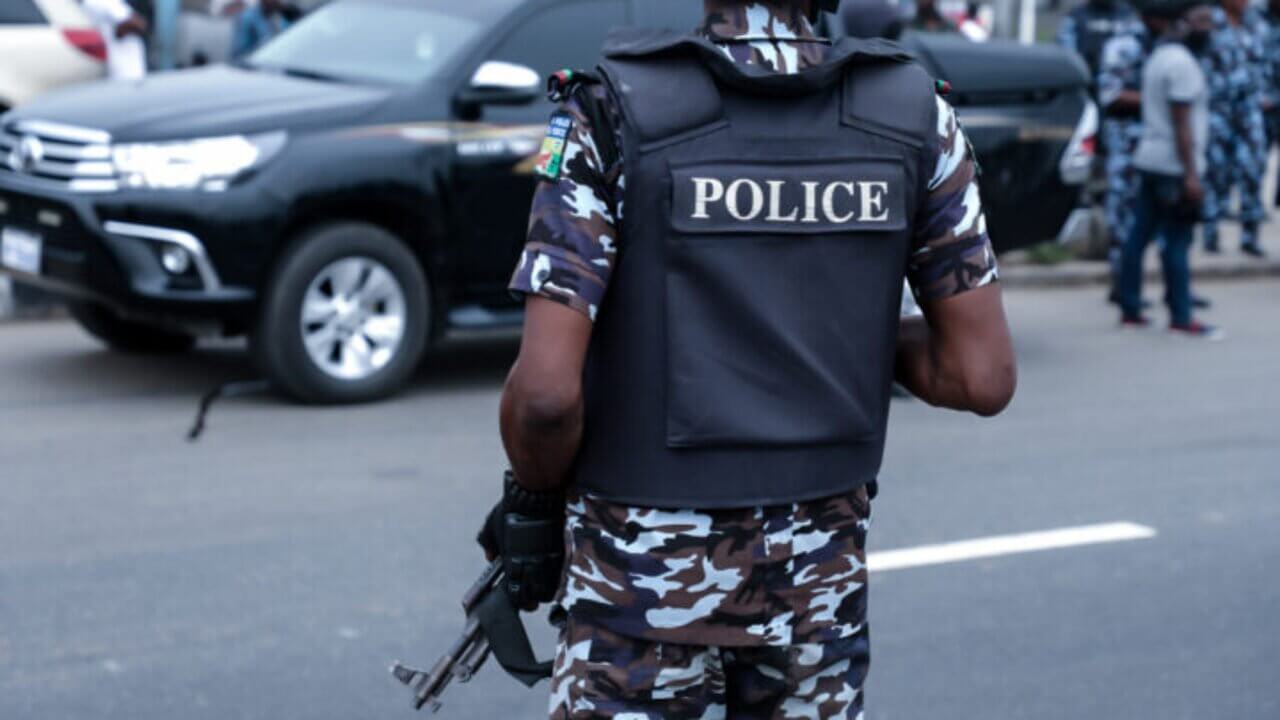When about 30 armoured vehicles procured from around the world arrived the battle-front, military high commands in Abuja thought that would soon turn the tide in the intractable insurgency in the north-east part of the country. Soon, a tally showed that 16 of those precious equipment were either destroyed or taken away by the insurgents.
The Abubakar Shekau-led Boko Haram and the Islamic State in West Africa Province (ISWAP) are using lapses in command structures on the side of the Nigerian military to inflict heavy losses on troops and convert military supplies for their own use, Daily Trust on Sunday reliably gathered.
Informed sources told our correspondents that the two Boko Haram factions have for a long time largely relied on weapons confiscated from the military after sacking troops from their camps.
Data tracked by Daily Trust on Sunday show a consistent pattern of attacks on military formations around the terrorists-infested areas in Borno, Yobe and Adamawa states. During such attacks, armouries, vehicles and food supplies are usually looted.
For instance, between 2018 and the first quarter of 2021, the two factions of the Boko Haram have raided at least 38 military formations in the North East and in most instances carted away military hardware.
Insiders and security watchers say far too many raids have been launched on some military formations that have not been reported by the media. This is besides hundreds of troops killed by the terrorists during such attacks.
Our correspondents report that recent attacks on military formations are a continuation of a deeply entrenched onslaught on Nigeria’s security architecture in the North East.
It started with attacks on police stations after the Shekau-led Boko took up arms against the Nigerian state especially from 2019, from where the insurgents made up their first stockpiles of arms.
The terrorists thereafter “descended” on military formations, making it easy to refill their armouries as they continued with their war of attrition.
Experts say defensive strategy often used by the military in holding on to positions is a major loophole being explored by the terrorists in launching attacks on the sentry troops.
Another major cause of the frequent failure of the troops is said to be in the choice and deployment of officers, especially frontline commanders leading the men.
Preferential posting of some officers and favouritism is also affecting troops’ morale and discipline. This, insiders say, has roots from recruitment into the elite Nigerian Defence Academy (NDA) where VIPs corner the admissions.
There is a general consensus among security experts that even though the two factions of the Boko Haram capitalize on Nigeria’s porous borders to bring in arms, they nonetheless get large chunk of their fighting equipment by attacking military formations.
Nigeria is bordered by Benin, Cameroon, Chad, and Niger and shares maritime borders with Equatorial Guinea, Ghana and São Tomé and Príncipe.
With an area of 923,768 km², the troubles in Sudan, Libya and Chad, occasioned by shortage of manpower to protect its borders especially in the Lake Chad region, make Nigeria increasingly vulnerable to arms proliferation.
“But beyond the crises in our neighbouring countries and our porous border is the problem within our military system,” said Salihu Bakhari, a retired military officer and a security expert with deep knowledge of happenings in the North East.
“Go and review all the videos of the guns, APCs, rocket launchers, gun trucks, Hilux vehicles and other weapons being used by the Boko Haram. You will see that they took them from our troops.
“The terrorists have in the past ten years raided hundreds of military formations and whenever the troops ‘tactically withdraw’, the attackers simply take all the arms left behind by the troops,” Bakhari said.
He said the introduction of Super Camps Strategy (SCS) by the former Chief of Army Staff (COAS), Lt. Gen. Tukur Buratai, did not help matters.
Daily Trust on Sunday recalled that In July 2019, the military high command ‘improvised’ the concept of SCS as a result of multiple factors, including continuous attacks on the scattered Forward Operations Bases (FOB) of the military.
Over time, the FOBs, situated in villages and smaller towns especially in northern and southern parts of Borno State, became vulnerable to attacks because of inadequate manpower and equipment.
The Super Camp Strategy led to the establishment of few well-constructed military strongholds. It brought to the end the concept of smaller military outposts with a higher probability of being attacked by Boko Haram invaders.
About 12 of such camps were established by the military but findings revealed that many of them have been attacked by the terrorists in the last two years and key military assets carted away.
One source disclosed that over 70 per cent of the weapons and other military equipment procured by the federal government to fight the insurgents end up in the hands of the Boko Haram forces.
He said routine pictures from operations released by the military often show officially branded vehicles as “recoveries” from the insurgents.
The situation, sources say, has become a huge headache and dilemma for the top echelon of Nigerian security architecture.
“There is now a big debate going on for and against deployment of more weapons. It is a dilemma because you cannot afford to have ill-equipped troops but the big question is of what use is procuring more weapons when we know that most of it will end up in the hands of the insurgents,” a source said.
Another intelligence source said, “I won’t be able to put a percentage on the quantity of arms and other equipment that the terrorists have snatched from our military and other security agencies.
“However, it could be within the range of 50 per cent now compared to 2012-15, where it could be said to be about 65 per cent. These were failures of commands and the lack of patriotism and professionalism.
“Failure of commands is due to inexperience on the part of some of the commanders in the field because when confronting the terrorists, most of the commanders lack the desired field experience to turn the tide against the well organised, motivated terrorists, due to their religious ideological training and drugs the influence.
“Most of our troops, due to the nature of the recruitment process, training and equipment shortcomings, are always willing to take to their heels and abandon all arms/ammo at their procession,” he said.
Two security sources told Daily Trust on Sunday that the Air Force’s renewed vigour is helping in boosting the morale of ground troops as fighter jets are sent on missions even at night when there is overwhelming attack.
The Air Force is also expected to launch a convert unmanned aerial vehicle with a capacity to carry out solo missions on targets very soon.
On his part, public affairs analyst, Abubakar Mohammed Kareto, said Boko Haram insurgents had in the past few months displayed some worrisome caches of arms and ammunition stolen from military formations even after the troops had claimed such attacks were repelled.
“We may not completely rule out the possibility of Boko Haram getting their weapons from Libya and other war ridden African countries, but it is glaring that each time Boko Haram and ISWAP overpowered a military base, they seize caches of assault rifles and hundreds or thousands of rounds of ammunition they could use in later strikes. This has fuelled their bloody rebellions for over a decade now.
“The video released by ISWAP on the recent attack on Damasak have exposed the fact that the vehicles used for the attack were seized from police and the army.
“We have also seen the recently released pictures by Boko Haram of seized vehicles from the military in Dikwa,” he said.
On how to turn the tide against the terrorists, Kareto said, “preventing unexpected battle losses is almost impossible for peace operations; we have seen many instances in Mali, Somalia and other terror ridden places.
“But they (Nigerian Armed Forces) must do more to ensure that arms and ammunition are not diverted or lost through other means, such as abandonment, illicit transfers, corruption and poor management of recovered material.
“The Nigerian Army can also strengthen the security around its military-bases to prevent infiltration by Boko Haram.”
Culled from Daily Trust









Leave feedback about this